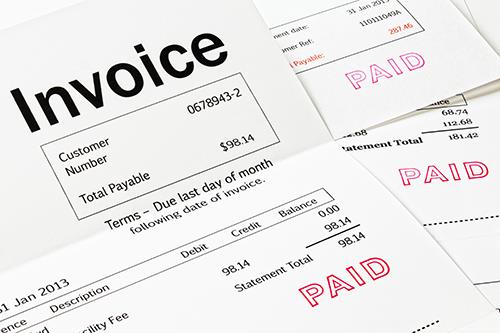Updated On:
May 12, 2022
• 5 Minute Read
Should You Marry Someone with Bad Credit?
According to recent studies, a little over half of Americans said they would not marry someone who has “bad” credit, or an extremely poor credit score. Funny enough, consumers seem to have a brighter outlook when it comes to credit card debt.
According to a recent survey of 1,000 Americans conducted by WalletHub, 38% of respondents said they found it perfectly acceptable to rack up debt to travel, and another 20% would willingly rack up debt to purchase electronics like phones and computers. Almost 20% even said they found it reasonable to rack up debt to purchase clothing, which sounds downright irresponsible regardless of your credit score.
But I digress. When it comes to the personal finances of someone you’re supposed to spend the rest of your life with, the statistics are clear. Consumers are willing to accept a certain amount of debt, but they loathe poor credit scores and don’t want to wind up with someone who has one.

The Downsides of Poor Credit
This probably has something to do with the fact that, by and large, debt is usually a temporary problem that has a very specific solution. Consumers with credit card debt have the option to pay it down over time, after all, and they can even speed up the process with a 0% APR balance transfer credit card.
But when your credit score is awful, the path toward a solution isn’t so cut and dry. Plus, poor credit comes with negative consequences that can affect a spouse in a major way.
As an example, poor credit can make it nearly impossible to qualify for a home loan, or to borrow money to finance a car. And even if you do get approved for a loan with less than stellar credit, you’ll typically pay a higher interest rate and more fees.
But the downsides of poor credit don’t end there. After all, a poor credit score can lead to higher rates on homeowners and auto insurance. Poor credit can even prevent you from qualifying for the job you want if a potential employer asks your permission to see a modified version of your credit report.
In summary, there are a myriad of downsides that come with poor credit, but there are zero benefits. With that in mind, it’s no wonder consumers aren’t thrilled, and might even be unwilling, to marry someone who has a low credit score.
Hoping to Marry? Spend Time Improving Your Credit Score
Fortunately, there are plenty of steps you can take to improve your credit score if you’re hoping to attract a partner, or even to help your partner improve their score if their poor credit is giving you pause. If you’re worried poor credit could ruin your relationship and your future, here are some steps you should take today:
- Check your credit score. Are you entirely sure your credit score is considered “poor?” It’s possible you’re right, but it’s also possible your credit isn’t as bad as you think. Either way, it’s smart to check your credit score early in the process so you can see where you stand. This page on CreditSoup can help you get a free look at your credit score in a matter of minutes, and this feature is entirely free to use.
- Dispute inaccuracies on your credit report. You should also take the time to view your credit report with all three of the credit bureaus — Experian, Equifax, and TransUnion. Fortunately, you can check each of these reports for free once per year using AnnualCreditReport.com. If you find any inaccuracies such as incorrect account balances or late payments, this guide from the Federal Trade Commission (FTC) outlines exactly how to dispute incorrect information and get it removed.
- Pay all of your bills early or on time. Your payment history makes up 35 percent of your FICO score, which is why late payments on credit cards and other bills can cause a significant hit. If your goal is improving your credit score, your best bet is making sure all your bills are paid early or on time with no exceptions.

- Pay down your debt. The second most important factor that makes up your FICO score is the amounts you owe in relation to your credit limits, or your credit utilization. You’ll have the best shot at better credit if you pay down debt until you have a utilization rate below 30 percent. As a general rule, you will reach this threshold when you have less than $3,000 in debt per $10,000 in open lines of credit available to you.
- Consider a balance transfer credit card. If you’re struggling to pay off debt due to high interest rates, you can also consider signing up for a balance transfer credit card or a low interest card. Although credit cards in this niche typically charge an upfront balance transfer fee of 3% or 5%, you can save money on interest with 0% APR for up to 21 months. Avoiding interest for such a long stretch of time can help you save considerable sums of money and pay down debt faster.
- Stop opening and closing credit accounts. Finally, don’t forget that the amount of new credit plays a role in your credit score, as does the average length of your credit history. To avoid damage to your credit score in these two categories, avoid opening or closing new credit accounts unless you absolutely have to.
The Bottom Line
Is poor credit a deal-breaker in your relationship? While it’s understandable to shy away from someone with poor credit who isn’t willing to make any changes, you might be surprised at how quickly one can boost their credit score when they start paying bills on time, they pay down debt that’s dragging their score down, and they learn to use credit responsibly otherwise.
Before you give up on an otherwise healthy relationship, it makes sense for your partner to spend a few months or however long it takes to turn their credit around. You can’t fix it for them, but giving them a chance to fix it themselves could help you maintain a relationship that’s worth saving.
Editorial Disclaimer: Information in these articles is brought to you by CreditSoup. Banks, issuers, and credit card companies mentioned in the articles do not endorse or guarantee, and are not responsible for, the contents of the articles. The information is accurate to the best of our knowledge when posted; however, all credit card information is presented without warranty. Please check the issuer’s website for the most current information.